This blog was collaboratively written by all the volunteers of Madagascar Expedition 6 in September 2017.
Our journey to Tampolove began bright and early, the sun just peaking over the horizon as, with bleary eyes, we piled into Blue Ventures’ truck for the first stretch: a typically bumpy ride along the sandy winding roads out of Andavadoaka.
The second half of the journey couldn’t have been more different. We all climbed into pirogues – the traditional dugout sailing canoes used in southwest Madagascar – and enjoyed a peaceful trip down a channel between an island and the mainland, surrounded on both sides by mangrove trees.
Suddenly our pirogues emerged into the vast expanse of the Bay of Assassins, named for the pirates that used to stash their treasure there. Our pirogues crossed the bay to arrive in Tampolove, a village where over the past eight years, Blue Ventures’ aquaculture team have been developing non-extractive and sustainable livelihood opportunities for the community.
Sea cucumbers are currently a very valuable seafood product with an increasing international demand
We arrived in the village to see great swathes of seaweed drying out in the sun, evidence of one of the main livelihoods of the villagers. Ben, one of Blue Ventures’ aquaculture team, then talked us through the other sustainable livelihood model in Tampolove: sea cucumber farming.
Sea cucumbers are currently a very valuable seafood product with an increasing international demand due to a belief that they have aphrodisiac properties. Ben explained the intricacies of farming these animals, which feed on organic matter in the sediment. He said that it takes the best part of a year for each batch of juvenile sea cucumbers to reach the point where they’re ready to harvest – when they reach a weight of around 400 grams.
Unfortunately, the cyclone of 2015 did serious damage to the sea cucumber farms in Tampolove, and was closely followed by a wave of disease. Blue Ventures decided to take the opportunity presented by these setbacks to fine-tune the model, working out exactly what conditions the sea cucumbers need to thrive and how to prevent a second disease outbreak from occurring in the future.
During this period of research they calculated the best size and maximum carrying capacity for each sea cucumber pen, and a plan was set in place for the restructuring of Tampolove’s farm. We were lucky enough to witness the construction of the new 30x30m square pens, each with foot high fences and large enough to contain up to 1350 sea cucumbers.
The new structure has them neatly arranged into rows to minimise resources used by sharing fences and maximising utilisation of space. Other new features include galvanised steel spikes to reduce the need for maintenance and maximise the pens’ longevity. The first juvenile sea cucumbers will be imported soon, and the plan is to introduce a new set on a monthly basis to produce a steady stock in the long run.
Like everything Blue Ventures does, this initiative works closely with the community, and after discussion with the Tampolove community it was decided that the area around the sea cucumber farms should also be a no take zone, where extraction of species other than sea cucumbers would be prohibited.
An experience that can only be described as every adventurous kid’s dream
The community has also agreed on contracts that every sea cucumber farmer must sign, giving them access to this innovative livelihood opportunity. These contracts ensure that all the farmers will help with the maintenance of the farms, adhere to certain rules, attend meetings and help guard the farms.
Ben and his team have recently constructed a new watchtower, complete with a light and siren, that will make guarding the sea cucumbers from theft much easier. We were lucky enough to get to climb this watchtower, an experience that can only be described as every adventurous kid’s dream. It’s basically a giant treehouse on stilts over water! Once at the top, our fascinating day finished with an amazing view over the sea cucumber farms and the Bay of Assassins beyond.
Find out more about sustainable aquaculture in southwest Madagascar.
Experience Tampolove for yourself on a marine conservation expedition!


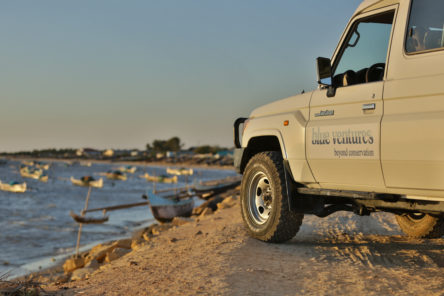
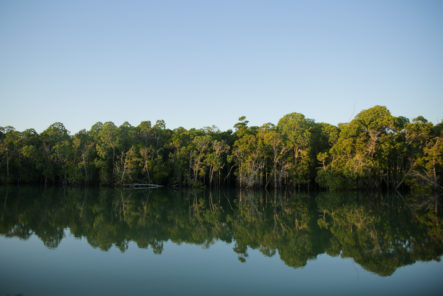
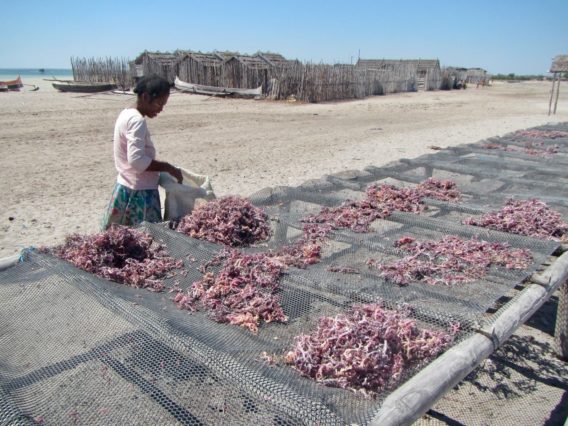
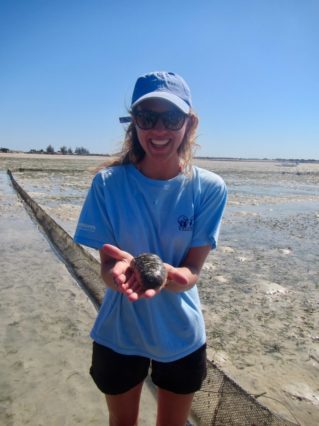
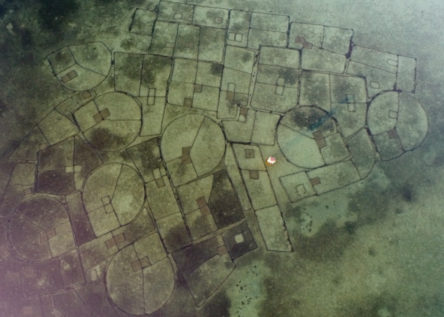
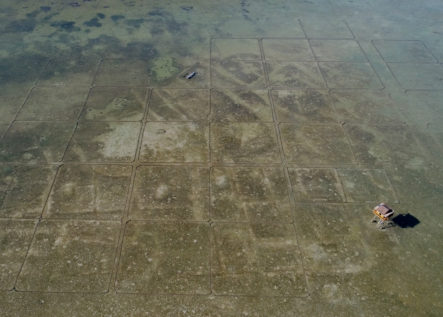
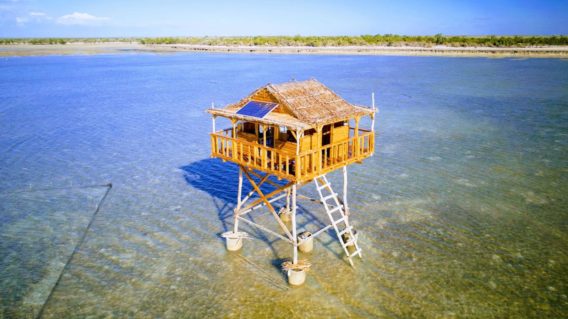
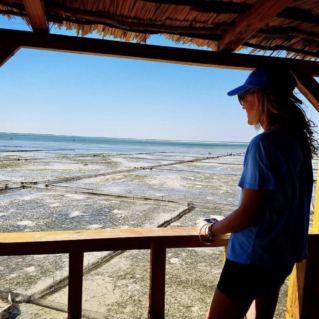
GOOD THANK YOU SO MUCH I ENCOURAGE TO CONTINUE WITH GREAT JOB UR DOING